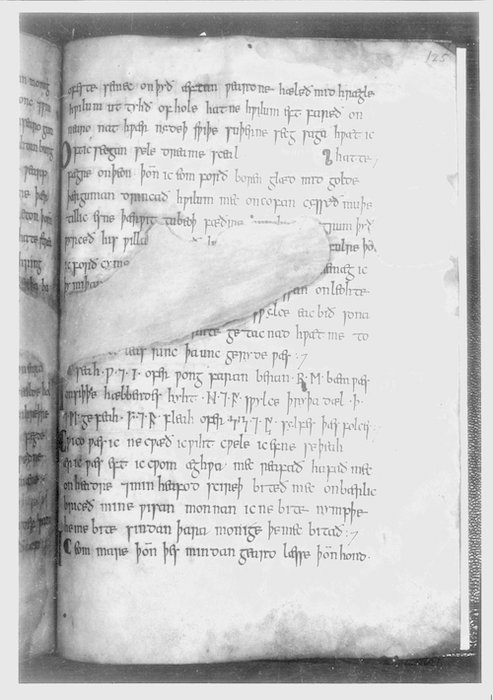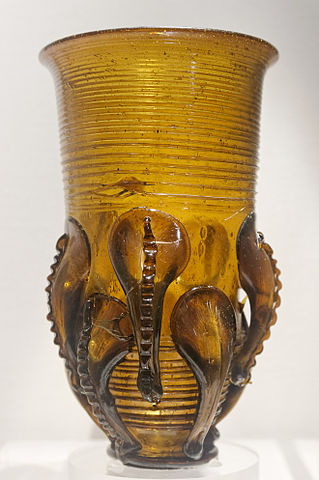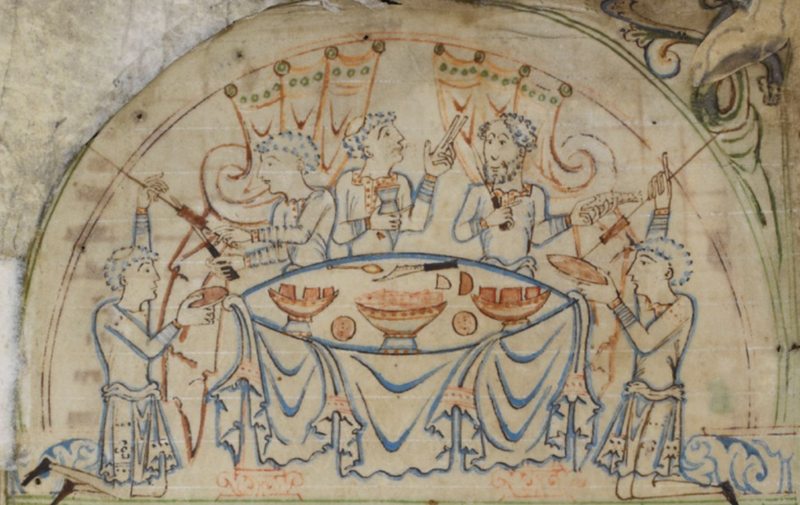Symphosius Riddle 62: Pons
ALEXANDRAREIDER
Date: Fri 09 Sep 2022Stat nemus in lymphis, stat in alto gurgite silva,
Et manet in mediis undis inmobile robur;
Terra tamen mittit quod terrae munera praestat.
A grove stands in the waters, a wood stands in the high stream,
And immobile oak abides in the middle of the waves;
And yet the earth sends that which supplies gifts to the earth.
Notes:
This edition is based on Raymond T. Ohl, ed. The Enigmas of Symphosius. PhD dissertation, University of Pennsylvania, 1928.
Tags: riddles solutions latin symphosius



Commentary for Bern Riddle 62: De stellis
NEVILLEMOGFORD
Date: Thu 01 Apr 2021Matching Riddle: Bern Riddle 62: De stellis
Stars and nuns—what a great combination! Riddle 62 is one of my very favourite riddles. It is all about the relationship between humans and the stars, and it depicts the stars as nuns and the heavens as an enormous, celestial nunnery. It is also one of only three Bern riddles written in the 3rd person (the other two are Riddles 54 and lines 4-6 of Riddle 7).
The riddle begins with the image of “a thousand sisters” (milia sorores) who live in “one house” (domo…una). The number 1000 is far too small to account for all the visible stars, but it serves as a proxy term for a huge and uncountable amount. It is possible to read the riddle as one about genetic sisters in a domestic setting (see Röösli, pages 94-5). But there are several clues that the riddler has a religious community in mind: they are sisters who live silently (line 3), harmoniously (line 4), and without envy (line 5) in a single house.
Stars were an important element in medieval monastic timekeeping. Monks and nuns placed especial importance on living their lives according to a communal schedule, because such obedience provided stability in a world of flux and it negated the whims and desires of the individual. Thus, ringing the bell at the right time for monks to wake up, pray, or chant the psalms was very important for them. One of the most important timings in the schedule was when to rise during the middle of the night for the celebration of Nocturns, the first of the Monastic Hours. St Benedict of Nursia, the sixth century author of the most influential monastic rule in western monasticism, specified that, during the winter half of the year, “it is necessary to rise at the eighth hour of the night” (octava hora noctis surgendum est (Regula Benedicti, page 52)). This required a form of accurate timekeeping at night—and this is where the stars come into the picture.
Several medieval sources mention the use of the stars for nocturnal timekeeping. The earliest, as far as I am aware, is John Cassian’s account of the practices of Egyptian and Syrian monasticism at the end of the fourth century (Institutes, pp. 108A-10A.). This practice spread to western Europe along with the spread of monasticism in subsequent centuries. In the second half of the sixth century, Gregory of Tours produced a handbook on practical astronomy, De cursu stellarum. In it, he gives descriptions and diagrams of the constellations and their movements, which would allow the cathedral clergy of Tours and local monastics to calculate time based the stars’ rising and setting. Five hundred years later, and the stars were still being used in monasteries around Europe. For example, several sources describe this kind of timekeeping being used in the influential French monastery of Cluny in the early twelfth century. Only from the end of the eleventh century did water clocks and hour glasses slowly begin to take over timekeeping duties.
I really do think that the riddler was thinking about monastic timekeeping when they wrote this riddle. The term cursus in line 4 refers to the stars’ movements (the cursus stellarum), but also the cursus psalmorum (“order of the psalms”) that made up the mainstay of the monastic day. On the one hand, the stars move silently and keeping their cursus (“courses”) “in controlled order” (moderato… in ordine). On the other, the nuns maintain their own liturgical scheme (suos cursus) of psalms and prayers without chatter and as part of a regulated sequence (moderato…in ordine). The movements of the nuns on the earth obediently follow those of the stars in the heavens.
I hope you will agree with me that Riddle 62 is one of the most unconventional (nunconventional?) and creative riddles in the Bern collection. After all, is there a better image in the medieval riddle tradition than a sky full of flying nuns?
References and Suggested Reading:
Benedict of Nursia. Regula Benedicti. Edited by Rudolph Hanslik, Regula Corpus Scriptorum Ecclesiasticorum Latinorum 75,. Vienna, Hoelder-Pinchler-Tempsky, 1960.
Borst, Arno. The Ordering of Time: From the Ancient Computus to the Modern Computer. Translated by Andrew Winnard. Cambridge: Polity Press, 1993.
Cassian, John. De coenobiorum institutis libri duodecim. In Joannis Cassiani opera omnia. Edited by Jacques Paul Migne. Vol. 1, Patrologia Latina 49. Paris: J.P. Migne, 1846. Pages 53A-395A. Available here.
Gregory of Tours. De cursu stellarum ratio. In Gregorii Turonensis Opera. Edited by Bruno Krusch. Vol. 1.2, MGH Scriptorum Rerum Merovingicarum. Hanover: MGH, 1969. Pages 109-422. Available here.
McCluskey, Stephen C. Astronomies and Cultures in Early Medieval Europe. Cambridge: Cambridge University Press, 1998.
Mogford, Neville. “The Moon and Stars in the Bern and Eusebius Riddles.” In Riddles at Work in the Early Medieval Tradition: Words, Ideas, Interactions. Edited by Megan Cavell and Jennifer Neville. Manchester: Manchester University Press, 2020. Pages 230-46.
Röösli, Samuel. “The Pot, the Broom, and Other Humans: Concealing Material Objects in the Bern Riddles.” In Secrecy and Surveillance in Medieval and Early Modern England. Edited by Annette Kern-Stähler & Nicole Nyffenegger. Swiss Papers in English Language and Literature (SPELL) 37. Tübingen: Gunter Narr Verlag, 2020. 87-104 (page 94-5).
Tags: latin Bern Riddles
Related Posts:
Bern Riddle 7: De vesica
Bern Riddle 54: De insubulis